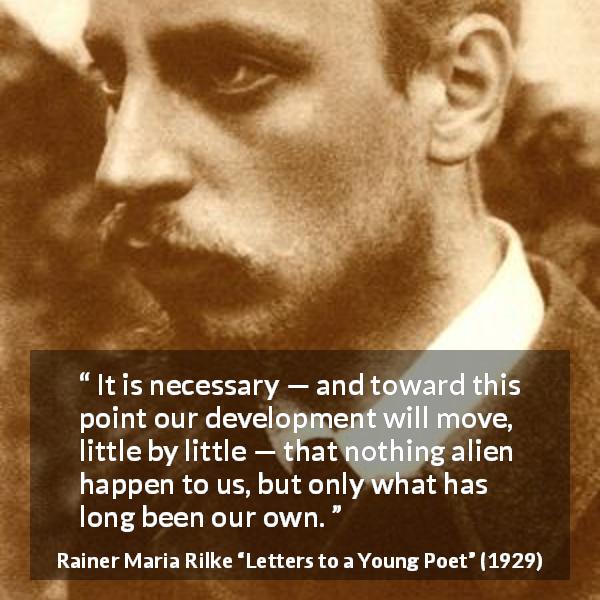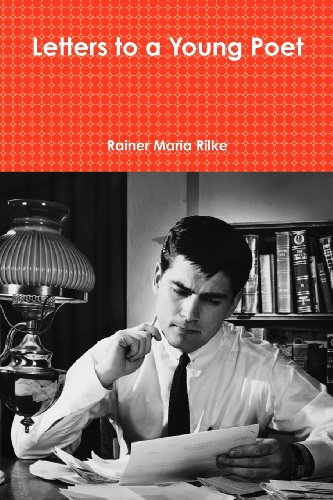
In this nature of its origin lies the judgment of it: there is no other.īut despite his opening caveat, Rilke does offer young Kappus advice both practical and poetic: And if this should be affirmative, if you may meet this earnest question with a strong and simple “I must,” then build your life according to this necessity your life even into its most indifferent and slightest hour must be a sign of this urge and a testimony to it.Ī work of art is good if it has sprung from necessity.

This above all - ask yourself in the stillest hour of your night: must I write? Delve into yourself for a deep answer. In a sentiment that calls to mind Bukowski’s incantation from his poem “So you want to be a writer” - “unless it comes out of your soul like a rocket … don’t do it,” he admonished - Rilke adds: Search for the reason that bids you write find out whether it is spreading out its roots in the deepest places of your heart, acknowledge to yourself whether you would have to die if it were denied you to write. Echoing Nietzsche’s famous assertion that “no one can build you the bridge on which you, and only you, must cross the river of life,” Rilke offers: In the very first installment from their now-iconic correspondence, the young poet shares some of his writing with his mentor and extends the simple, enormously difficult question of how one knows one is a writer. 1902 portrait of Rainer Maria Rilke by Helmuth Westhoff, Rilke’s brother-in-law

But the finest, richest, truest answer of all comes from Rainer Maria Rilke (December 4, 1875–December 29, 1926) in Letters to a Young Poet ( public library) - those invaluable packets of wisdom on writing and life, which Rilke bequeathed to a 19-year-old cadet and budding poet named Franz Xaver Kappus. Auden, Jennifer Egan, Pablo Neruda, Joan Didion, David Foster Wallace, Italo Calvino, and William Faulkner.


Even more complex and nuanced than the question of how to be a good writer, which has elicited answers from some of humanity’s most beloved authors, is the question of why be a writer at all - why, that is, do great writers write?Īmong the most memorable and invigorating answers are those sprung forth by W.H.


 0 kommentar(er)
0 kommentar(er)
